
Alexander I of Epirus, also known as Alexander Molossus, was a king of Epirus (343/2–331 BC) of the Aeacid dynasty. As the son of Neoptolemus I and brother of Olympias, Alexander I was an uncle, and a brother-in-law, of Alexander the Great. He was also an uncle to Pyrrhus of Epirus.
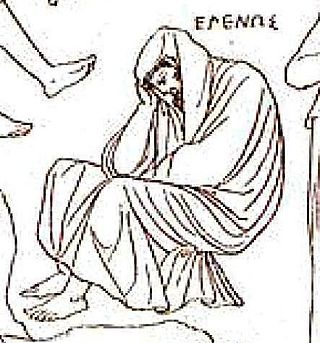
In Greek mythology, Helenus was a gentle and clever seer. He was also a Trojan prince as the son of King Priam and Queen Hecuba of Troy, and the twin brother of the prophetess Cassandra. He was also called Scamandrios, and was a lover of Apollo.

In Greek mythology, Andromache was the wife of Hector, daughter of Eetion, and sister to Podes. She was born and raised in the city of Cilician Thebe, over which her father ruled. The name means 'man battler' or 'fighter of men' or 'man fighter' or 'man's battle', from the Greek stem ἀνδρ- 'man' and μάχη 'battle'.
Hippomedon may refer to several figures in Greek mythology:
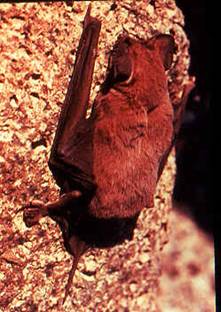
The Molossidae, or free-tailed bats, are a family of bats within the order Chiroptera. The Molossidae is the fourth-largest family of bats, containing about 110 species as of 2012. They are generally quite robust, and consist of many strong-flying forms with relatively long and narrow wings with wrinkled lips shared through their genus. Their strong flying form allows them to fly 60 miles per hour using tail winds and at altitudes over 10,000 feet. This makes them unique among bats, as they are the only bat family that withstands the elevation. They are widespread, being found on every continent except Antarctica. They are typically found in caves, abandoned mines, or tunnels.
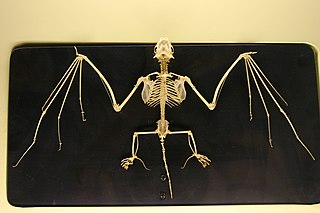
Molossus is a genus of bats. The genus contains ten species with a New World distribution from Mexico in the north to northern Argentina at its most southerly limit. Four of these species have distributions that include various islands in the West Indies such as Puerto Rico or Trinidad.

In Greek antiquity, Hermione was the daughter of Menelaus, king of Sparta, and his wife, Helen of Troy. Prior to the Trojan War, Hermione had been betrothed by Tyndareus, her grandfather, to her cousin Orestes, son of her uncle, Agamemnon. She was just nine years old when Paris, son of the Trojan king Priam, arrived to abduct her mother, Helen.
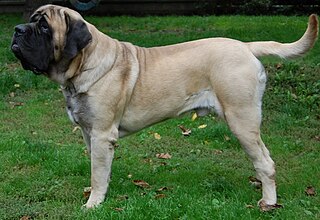
The English Mastiff, or simply the Mastiff, is a British dog breed of very large size. It is likely descended from the ancient Alaunt and Pugnaces Britanniae, with a significant input from the Alpine Mastiff in the 19th century. Distinguished by its enormous size, massive head, short coat in a limited range of colours, and always displaying a black mask, the Mastiff is noted for its gentle and loving nature. The lineage of modern dogs can be traced back to the early 19th century, but the modern type was stabilised in the 1880s and refined since. Following a period of sharp decline, the Mastiff has increased its worldwide popularity. Throughout its history the Mastiff has contributed to the development of a number of dog breeds, some generally known as mastiff-type dogs or, confusingly, just as "mastiffs". It is the largest living canine, outweighing the wolf by up to 50 kg (110 lbs) on average.

The Alaunt is an extinct type of dog which came in different forms, with the original possibly having existed in North Caucasus, Central Asia and Europe from ancient times.
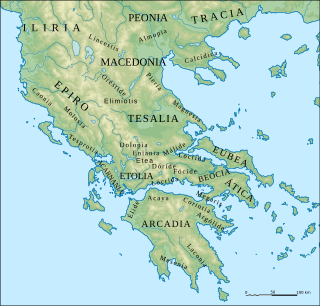
The Molossians were a group of ancient Greek tribes which inhabited the region of Epirus in classical antiquity. Together with the Chaonians and the Thesprotians, they formed the main tribal groupings of the northwestern Greek group. On their northern frontier, they neighbored the Chaonians and on their southern frontier neighbored the kingdom of the Thesprotians. They formed their own state around 370 BC and were part of the League of Epirus. The most famous Molossian ruler was Pyrrhus of Epirus, considered one of the greatest generals of antiquity. The Molossians sided against Rome in the Third Macedonian War and were defeated. Following the war, the region witnessed devastation while a considerable number of Molossians and other Epirotes were enslaved and transported to the Roman Republic, overwhelmingly in the Italian Peninsula itself.
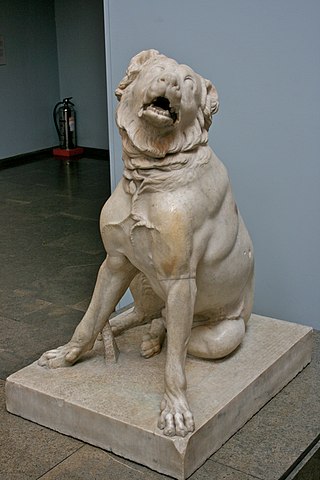
The Molossus, also known as the Molossian hound and Epirus mastiff, is an extinct dog breed from Ancient Greece.

Andromache is an Athenian tragedy by Euripides. It dramatises Andromache's life as a slave, years after the events of the Trojan War, and her conflict with her master's new wife, Hermione. The date of its first performance is unknown. Some scholars place the date sometime between 428 and 425 BC. Müller places it between 420 and 417 BC. A Byzantine scholion to the play suggests that its first production was staged outside Athens, though modern scholarship regards this claim as dubious.
Dogs of Roman Britain concerns the presence of dogs within Britain under Roman occupation. Through various excavations in the Province of Britannia, evidence for a variety of uses from dogs has been found. There has been presences of dog remains, figurines of dogs, and use of dogs in religion found among the remains of excavated sites. Along with this are written references to the use of dogs as well.
Neoptolemus may refer to the following people:

In Greek mythology, Polites was the legitimate son of King Priam and Queen Hecuba and was known for his swiftness. He was a prince of Troy, and brother of 49 other children, including 12 daughters. He was killed by Neoptolemus (Pyrrhus), son of Achilles, who then killed his father. He is also known by his family as "defender of Troy."
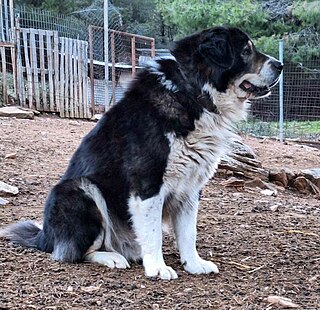
The Greek Shepherd or Greek Sheepdog is a breed of livestock guardian dog from Greece. Thought to be ancient in origin, the Greek Shepherd is very closely related to livestock guardian dog breeds from neighbouring countries; it is believed that some dogs are simultaneously claimed to be other breeds as they migrate annually across national borders with the flocks they protect in search seasonal pastures.
In Greek mythology, Molossus was the son of Neoptolemus and Andromache. He was the eponymous founder of the Molossians, an ancient Greek tribe that inhabited the region of Epirus located in northwestern Greece. Molossus had two brothers, Pielus and Pergamus, who were also sons of Neoptolemus and Andromache.

The Cão de Gado Transmontano or Transmontano Mastiff is a breed of livestock guardian dog from Portugal. It originates in the historical province of Trás-os-Montes e Alto Douro in north-eastern Portugal, and is a rare breed confined mostly to this area.

Molossus alvarezi, or Alvarez's mastiff bat, is a species of bat in the family Molossidae, native to the Yucatán Peninsula. It lives within a relative homogenous environment within perennial forests, low forests, and a band of xeric vegetation.














